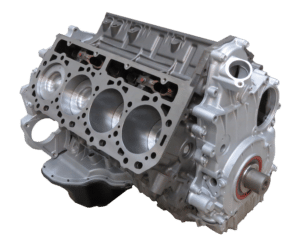As the snow is finally gone and the temperatures get warmer, it’s important to perform some regular maintenance on your diesel vehicle. Winter can be incredibly hard on vehicles, so it’s best to ensure that your vehicle is in great road condition while it’s easier to perform maintenance yourself. Here are DFC Diesel’s top tips for spring maintenance for your diesel.
Why is Diesel Spring Maintenance Important?
All vehicles, no matter their fuel source, require regular maintenance. A diesel engine requires regular maintenance because it has such high pressure requirements for combustion. Just like it’s important to winterize your vehicle, it’s also important to get your diesel ready to thrive in the spring and warmer months. Winter is harsh, so you want to ensure that all the elements of your diesel that could have been impacted by the extreme cold is checked and maintained. Maintenance is one of the primary ways to ensure your diesel engine lasts longer than a warranty. Many service manuals recommend the bare-bones maintenance approach, but putting some extra love into your diesel and increasing the frequency of maintenance will ensure your vehicle lasts longer and works better.
What Kind of Damage Can Winter Cause for Diesel Vehicles?
Winter is harsh for every vehicle. The extreme cold during the dead of winter, the harsh chemicals used to remove ice, as well as the freeze-thaw period can all cause issues for your diesel. Here are a few key kinds of damage that winter can cause (and that you need to check in the spring!):
Battery Power Lost
Winter can sap the energy out of your battery, causing it to fail even as the temperatures warm. Once a battery dies, it’ll never be the same. If you found yourself jumping your vehicle on the regular, you may have a battery on its deathbed.
Cracks in Rubber and Plastic
The extreme cold can damage the rubber and plastic throughout your entire vehicle. This means that the hoses that hold fluid, fuel lines, seals around your doors, and other pieces of plastic in your exterior could become damaged during the winter.
Rust and Corrosion
The sand and salt on the roads can cause some major issues with your vehicle. Small rocks in the sand can hit something the wrong way and cause damage to your windshield and vehicle body, salt can corrode the metal and paint on your vehicle, and the salt and sand can also get into your vehicle’s brakes and exposed undercarriage.
Fluid Issues
The wintertime is not kind to the fluids in your vehicle. Brake fluid, engine oil, coolants, transmission fluid, power steering, differential fluid, hydraulic clutch fluid, and window washer fluids are all vehicle fluids that could encounter issues from freezing temperatures during the winter.
What Needs to Be Tuned Up for Spring
The springtime is when you can finally stand outside and tune up your vehicle. Here is a list of things you will want to replace/maintain or at least check every spring.
- All fluids in your vehicle. It’s a good idea to replace all the fluids (brake fluid, engine oil, engine coolants, transmission fluid, power steering, front and rear view differential fluid, hydraulic clutch fluid, and window washer fluid) every spring.
- Replace your filters. Filters are meant to be replaced, replacing your air filter and fuel filter every spring is a wise choice.
- Brakes and brake pads. You may not need to replace them, but it’s wise to ensure your brakes are clean and in good working order every spring after a harsh winter.
- Tires. When you change over your winter tires, make sure that your summer tires have an even treat and are good for another season of driving.
- Cooling system. For a diesel engine, the cooling system is one of the most important things to check before it gets too hot out. Ensure your vehicles cooling system is functioning properly to avoid the diesel overheating (which can cause major issues).
Tips for Diesel Spring Maintenance:
- It is far better to change your vehicle’s oil based on the mileage and way you drive compared to what the dash says.
- It’s better to change clean engine oil than dirty. If your engine oil is dirty, it’s already causing damage.
- It’s best to service your vehicle more often than recommended by the service manuals, this will help you get the most out of your diesel.
- Regularly check your fluid levels.
- Regularly replace all your filters.
DFC Diesel is home to Edmonton’s number one diesel engine experts. Our team is highly trained and specialized and can provide insight to all your diesel needs. If you need diesel parts, a new diesel engine, or you simply have a question about diesel engines, contact us!





